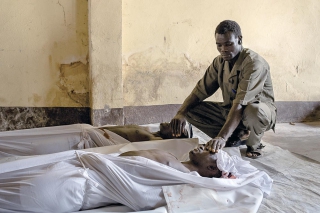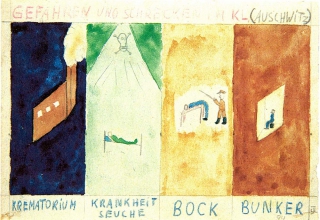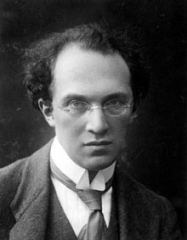Sorry, this entry is only available in German.
Tag: Zweiter Weltkrieg
Kokoda VR published
On 3 November 2017, the Australian Broadcasting Corporation (ABC), an Australian public broadcaster, published the virtual reality application “Kokoda VR” free of charge. In 12 chapters, one can learn much about the fighting in Papua New Guinea between June and November 1942 when the Japanese forces tried to get to the south coast and thus the capital Port Moresby via the now famous Kokoda Track.
(Deutsch) Berlinale 2017: Filme mit Kriegsbezug
Film Premiere: Kriegsfotografinnen (Martin-Gropius-Bau, Berlin)
On 24 February 2016, the documentary “Kriegsfotografinnen: Der Kampf um Bilder, Leben und Tod” (women war photographers: fighting for pictures, lives and death) by Sigrid Faltin will have its premiere at Martin-Gropius-Bau Berlin. After the screening, Pascale Hugues (Le Point) talks with Christine Spengler, one of the film’s photographers. Continue reading “Film Premiere: Kriegsfotografinnen (Martin-Gropius-Bau, Berlin)”
Berlinale 2016: Films that address War
Premiere: “The Notebook” at PACT Zollverein (Essen)
Thomas Geve: “There are No Children Here” (Cologne)
From 9 May to 3 August 2014, the NS-Dokumentationszentrum Köln (Nationalsocialism Documentation Centre Cologne, NSDOK) presents the special exhibition “Es gibt hier keine Kinder” – Auschwitz, Groß-Rosen, Buchenwald (“There are no children here”). After his liberation from KZ Buchenwald, Thomas Geve, then 15 years of age, drew his memories of life in concentration camps. Proximity to death and the constant subjection to the guards are central to the documentary drawings; equally, they are a testimony of a youth’s will to survive. The NSDOK exhibition shows 75 of his drawings that since 1985 are part of the Yad Vashem collections in Jerusalem
Continue reading “Thomas Geve: “There are No Children Here” (Cologne)”
Patton
Wounds of the World – Magnum Photos (Osnabrück)
Concert: Revered – Banned – Drowned (Berlin)
On the occasion of the opening of the exhibition “verfemt, verfolgt – vergessen? Kunst und Künstler im Nationalsozialismus”1 the chamber symphonic orchestra Kammersymphonie Berlin, conducted by Jürgen Bruns, will play the concert Verehrt – verfemt – versunken2 at Nikolaikirche (St. Nicholas Church), Berlin’s oldest church. The concert consists of worky by Franz Schreker, Gideon Klein, Erich Zeisl, Egon Wellesz and Pavel Haas. They ranked as the most revered composers of their times, but due to Nazi persecution and murder, they vanished into oblivion. Both the concert and the exhibition are part of the theme year “Diversity Destroyed”.
 Continue reading “Concert: Revered – Banned – Drowned (Berlin)”
Continue reading “Concert: Revered – Banned – Drowned (Berlin)”



